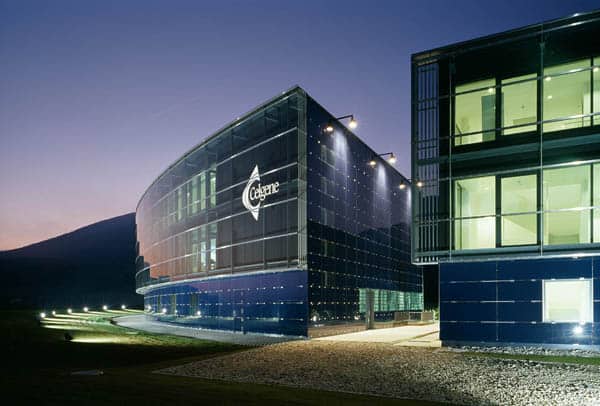
Celgene bucks trend to strengthen neuroscience pipeline
pharmafile | March 21, 2018 | News story | Research and Development, Sales and Marketing | Alzheimer's, Celgene, Prothena, biotech, drugs, neuroscience, pharma, pharmaceutical
Celgene has gone against industry movement to back out of the neuroscience area by putting down a potential $2.2 billion to gain options on three drug candidates held by Prothena.
The deal sees Celgene pay $100 million up front, alongside buying $50 million in shares of Prothena, with milestone payments on the three drugs potentially racking up to a total payment of $2.2 billion.
Whether Prothena will see anything of this money depends on how well each clinical candidate performs in Phase 1 trials.
The neuroscience area has not been blessed with a huge amount of good news of late, with Pfizer pulling out of the space and a raft of Alzheimer’s drugs flopping. Celgene backing the area as a long-term investment is welcome news, particularly in regards to Alzheimer’s research, with fears it could begin to flag after so many failures.
One of the candidates is a protein that targets tau. The build-up of tau protein in the brain is one hypothesis about how best to treat the degeneration linked with Alzheimer’s disease.
Prothena commented in the press release that it has “identified antibodies targeting novel epitopes on the tau protein with the ability to block misfolded tau from binding to cells and to inhibit cell-to-cell transmission, preventing downstream functional toxic effects.”
This could be of huge interest, after a number of the other major alterantive hypothesis, amyloid-targeting Alzheimer’s treatments, failed to show efficacy in trials.
The other named target was the protein, TDP-43, which is associated with amytrophic lateral sclerosis and dementia. There is one other protein that Prothena has chosen not to name as being a target, though this is still within the neuroscience space.
“Prothena has a legacy of innovation in neuroscience and a team with a deep understanding of biological approaches that target protein misfolding disorders. Our collaboration leverages each company’s core expertise in protein homeostasis and protein clearance to target proteins that are the underlying cause of many neurodegenerative and orphan diseases. The programs we have chosen to collaborate on have the potential to provide foundational assets from which we can build new therapeutic approaches to these currently untreatable neurological disorders” said Richard Hargreaves, PhD, Corporate Vice President Neuroscience and Imaging for Celgene.
Should Celgene choose to take any of these candidates further than Phase 1, it will be responsible for all global clinical development and commercialisation. Prothena will, in return, receive $80 million per candidate picked up.
Ben Hargreaves
Related Content

Voyager Therapeutics shares data from preclinical programmes for Alzheimer’s treatment
Voyager Therapeutics has announced new data from is two preclinical programmes targeting pathological tau for …

Eisai shares new data for Leqembi for Alzheimer’s treatment
Eisai and Biogen have announced that Eisai has shared new data for Leqembi (lecanemab-irmb) 100mg/mL …

FDA approves IMIDEX’s AI-powered device VisiRad XR
The technological pharmaceutical company IMIDEX has been granted clearance from the US Food and Drug …








